David W. Stark (c. 1879 - c. 1941) was a member of the Missouri Legislature in the early 20th century. He was a farmer in West Line, Missouri. [1] [2] [3]
David W. Stark (c. 1879 - c. 1941) was a member of the Missouri Legislature in the early 20th century. He was a farmer in West Line, Missouri. [1] [2] [3]
In November 1910, Stark was elected as a Democrat to the Cass County seat in the Missouri House of Representatives. [4]
On Monday, May 20, 1911, the St. Louis Globe-Democrat printed a story headed "Drunken Democrats Turn Assembly Into a Sunday Debauch; Liquor-Fired Mob Breaks Up Senate Session; Carouse Is in Celebration of Game Warden." [5] In it, the Globe said: [6]
The Sunday session of the House terminated late in the afternoon in a fist fight and near riot. Kirby J. Smith of Ava, Missouri, a clerk in the office of Game Commissioner Tolerton . . . was assaulted upon the floor of the House by Representative David W. Stark of Cass County.
The St. Joseph News-Press reported that Stark "struck at" Smith and then "grasped him by the throat and pushed him, scrambling and fighting, to the rear of the hall. . . At last someone tripped Stark, and the two sprawled on the floor, and the other representatives" pulled Stark off. [7]
Stark filed a suit against the Globe the next month, alleging libel and asking for $150,000 in damages. [8] The newspaper paid him $2,500 to withdraw the suit. [9]
Stark served two terms in Missouri's House of Representatives, and in 1916, he was elected to its Senate. He himself voted in Freeman, Missouri. [1] [10]
Stark's family lived in Cass County, Missouri, since the early 1850s. [11]
A marriage license was issued to Stark and Martha Ingels of Jackson County on May 16, 1910. [12] In 1917, the St. Louis Globe-Democrat reported that Stark was one of nine senators who "have their wives on the pay roll of the General Assembly as clerks or stenographers at $3.50 a day." [13]
About 1921 or 1922, Stark became "mentally unbalanced" and was admitted as a private patient at the Nevada Hospital for the Insane. In 1928, his private funds having been exhausted, his expenses at the hospital were taken over by Cass County. [3] [11]
In 1941, the Missouri Senate held a memorial service for eight former senators, including Stark, who had died "since the last session of the General Assembly." [14]
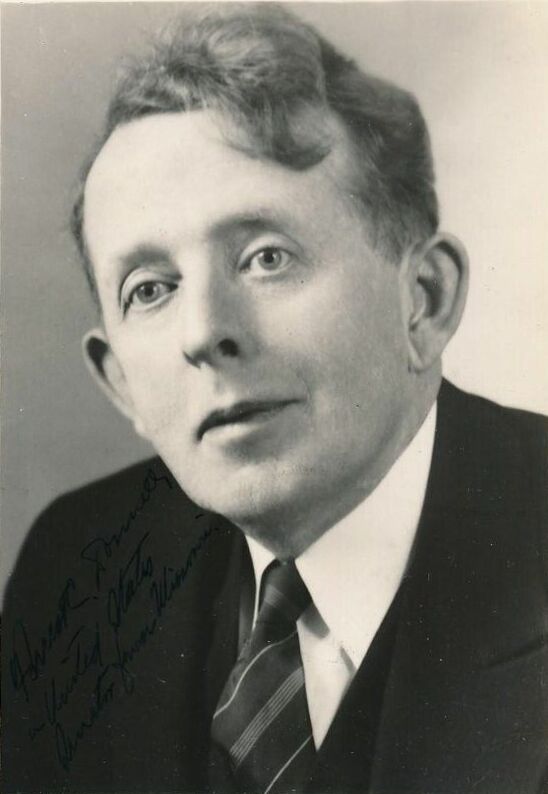
Forrest Carl Donnell was an American attorney and politician who served as a United States senator and the 40th governor of Missouri.

Thomas Terry Connally was an American politician, who represented Texas in both the U.S. Senate and the House of Representatives, as a member of the Democratic Party. He served in the U.S. House of Representatives from 1917 to 1929, and in the U.S. Senate from 1929 to 1953.

Garrett Lee Withers was an American politician and lawyer. As a Democrat, he represented Kentucky in the United States Senate and United States House of Representatives.

In the 1912–13 United States Senate elections, Democrats gained control of the Senate from the Republicans. Of the 32 seats up for election, 17 were won by Democrats, thereby gaining 4 seats from the Republicans. Two seats were unfilled by state legislators who failed to elect a new senator on time. They were the last Senate elections held before ratification of the 17th Amendment, which established direct elections for all seats in the Senate.
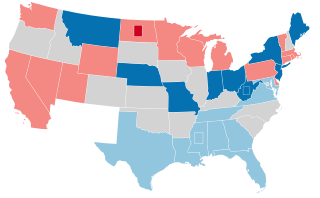
The 1910–11 United States Senate election, although the 17th Amendment was not passed until 1913, some states elected their senators directly before its passage. Oregon pioneered direct election and experimented with different measures over several years until it succeeded in 1907. Soon after, Nebraska followed suit and laid the foundation for other states to adopt measures reflecting the people's will. By 1912, as many as 29 states elected senators either as nominees of their party's primary or in conjunction with a general election.
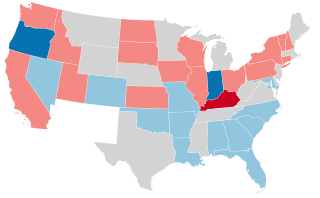
The 1908–09 United States Senate elections were held to determine the winners of the 31 class 3 Senate seats up for election, as well as various special elections to fill vacancies or confirm appointments.
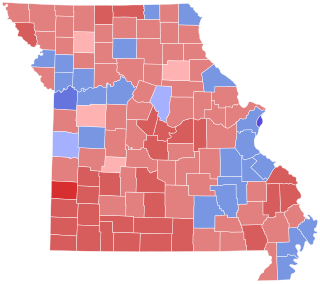
The 2002 United States Special Senate election in Missouri was held on November 5, 2002 to decide who would serve the rest of Democrat Mel Carnahan's term, after he died while campaigning and posthumously won the 2000 election. The winner would serve four more years until the next election in 2006. Missouri Governor Roger Wilson appointed Carnahan's wife Jean, also a Democrat, to serve temporarily. She then decided to run to serve the remainder of the term, but she was narrowly defeated by Republican nominee Jim Talent.

Henry Gordon Wells was a lawyer and a Republican politician in Massachusetts and New Hampshire.

The Black Day of the General Assembly was February 24, 1887, on which date the Indiana General Assembly dissolved into legislative violence. The event began as an attempt by Governor Isaac P. Gray (R/D) to be elected to the United States Senate and his own party's attempt to thwart him. It escalated when the Democratic-controlled Indiana Senate refused to seat the newly elected lieutenant governor, Robert S. Robertson, after being ordered to do so by the Indiana Supreme Court. When Robertson attempted to enter the chamber he was attacked, beginning four hours of intermittent fighting that spread throughout the Indiana Statehouse. The fight ended after Republicans and Democrats began threatening to kill each other and the Governor ordered police to get the situation under control. Subsequently, the Republican-controlled House of Representatives refused to communicate with the Democratic Senate, ending the legislative session.
The 1911 United States Senate election in New York was held from January 17 to March 31, 1911, by the New York State Legislature to elect a U.S. Senator to represent the State of New York in the United States Senate.
Andrew P. Koenig is an American politician who since 2017 has served in the Missouri Senate. Koenig is a former member of the Missouri House of Representatives as well as a small business owner. He represented the 88th district from 2009 to 2012 and the 99th district, which includes Manchester, Twin Oaks, Valley Park, and parts of Fenton, from 2013 to 2017. Koenig was elected in 2017 and re-elected in 2020 to serve as the State Senator from the 15th district.

The 2012 United States House of Representatives elections in Missouri were held on Tuesday, November 6, 2012 and elected the eight U.S. Representatives from the state of Missouri, a loss of one seat following the 2010 United States Census. The elections coincided with the elections of other federal and state offices, including a quadrennial presidential election and an election to the U.S. Senate.
Jill Schupp is a Democratic member of the Missouri Senate, representing the 24th district consisting of the western suburbs of St. Louis. Previously, Schupp represented the 88th district in the Missouri House of Representatives. On December 3, 2019, she announced she would run for Missouri's 2nd congressional district in 2020.

William Lair Thompson, known as Lair Thompson or W. Lair Thompson, was an American politician and lawyer from the state of Oregon. He served one term in the Oregon House of Representatives followed by a four-year term in the Oregon State Senate. Thompson was a conservative Republican who represented a large rural district. He served as President of the Oregon Senate during the 1915 legislative session. Thompson was one of Oregon's most prominent trial attorneys, handling a number of high-profile cases including one, Bunting v. Oregon, that required him to present arguments before the United States Supreme Court.
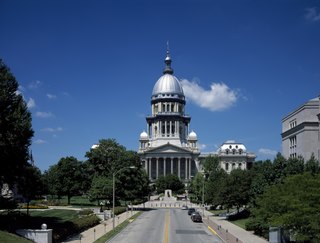
The 49th Illinois General Assembly met from 1915 to 1917. The first session convened on January 6, 1915 and adjourned sine die on June 30, 1915. The first special session convened on November 22, 1915 and adjourned sine die on May 10, 1916. The second special session convened on January 11, 1916 and adjourned sine die on February 14, 1916.

The 50th Illinois General Assembly met from 1917 to 1919. John G. Oglesby of Decatur was the Lieutenant Governor of Illinois and thus ex officio President of the Senate. Adam C. Cliffe of Sycamore was President pro tempore of the Senate. David Shanahan of Chicago was the Speaker of the House of Representatives.
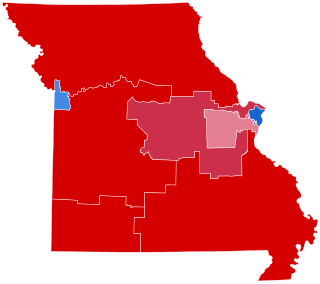
The 2022 United States House of Representatives elections in Missouri were held on November 8, 2022, to elect the eight U.S. representatives from the state of Missouri, one from each of the state's congressional districts. The elections coincided with other elections to the House of Representatives, elections to the United States Senate and various state and local elections. These was the first House of Representatives elections held in Missouri following the 2020 redistricting cycle. The associated primary elections were held on August 2, 2022.

Women's suffrage in Missouri became more active as a movement after the Civil War. There were significant developments in the St. Louis area, though groups and organized activity took place throughout the state of Missouri. An early suffrage group, the Woman Suffrage Association of Missouri, was formed in 1867, attracting the attention of Susan B. Anthony and leading to news items around the state. This group, the first of its kind, lobbied the Missouri General Assembly for women's suffrage and established conventions. In the early 1870s, many women voted or registered to vote as an act of civil disobedience. The suffragist Virginia Minor was one of these women when she tried to register to vote on October 15, 1872. She and her husband, Francis Minor, sued, leading to a Supreme Court case that asserted the Fourteenth Amendment granted women the right to vote. The case, Minor v. Happersett, was decided against the Minors and led suffragists in the country to pursue legislative means to grant women suffrage.
This article needs additional or more specific categories .(April 2021) |